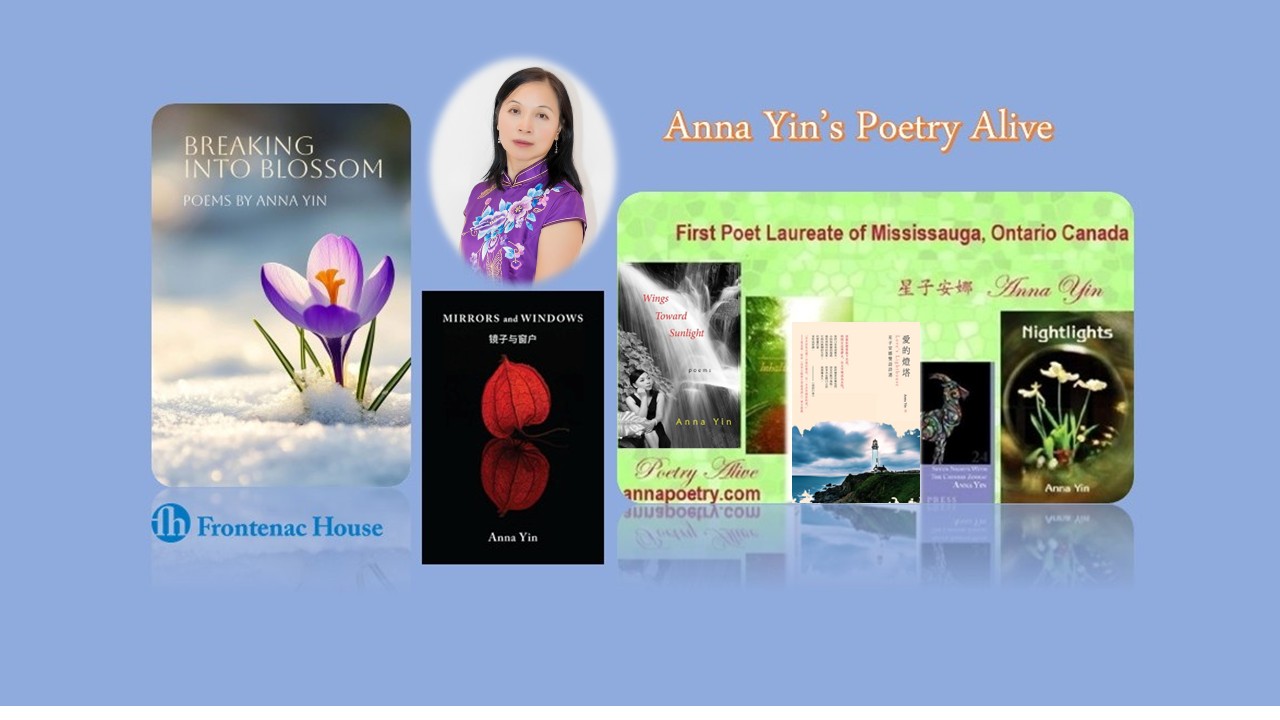Welcome back, Anna : )
I’m pleased to hear your trip was enjoyable and that the poetry interview in China went well.
Yes, PurdyFest #6 – AcornFest – was fun and yet another great “vacation for poets”! (thanks for coming up with this definition – it’s making my life much easier when I try to explain the fests as briefly & accurately as possible).
And I really like your poem. It seems somewhat of a new direction for you (?)
(use of humorous self-deprecation)
I love the metaphysical irony and self-deprecating humour of “since I talk a lot in silence” – to me it sounds like you are becoming increasingly ‘Canadianized’ in your use and understanding of humorous self-deprecation in your poetry – this is a major, maybe predominant, Canadian personality trait. The best Canadian poets use this to strong effect – esp. Al Purdy. Milt also used this in what I consider his most humanized poems, like “Riding with Joe Hensby” or “I’ll become a statue to myself”. A little self-parody in poetry goes a long way to making poetry accessible – perhaps it should be considered a key aspect of People’s Poetry.
(spiritual viewpoints: Christian/Buddhist)
Another new (?) aspect in your writing is a shift in your spiritual perspective (I could be wrong on this, as I don’t know the body of your older work).
Our personal situations are possibly a mirror image, from what little I know of your spiritual & cultural background. You are from the East, China – the Orient, where the dominant spiritualities and religions are more internal, and yet I understand you are a practicing Christian.
I’m from the West, and was raised in that most traditional and establishment of Christian churches, the Anglican (or Church of England – same as Terry). I was a true believer and even the head altar boy until about age 15. Around age 14 I seriously began to question the sincerity of my fellow parishioners, including my parents and our priest. It seemed that no one either really believed or practiced what they claimed to believe at Sunday morning services.
I remember at age 15 driving to church with my parents and younger brother, and then climbing over a large wooded hill to a secluded lake. I found more spiritual sustenance roaming around the lake in a state of mild reverie than I had ever felt in church, even as a participant in preparing and serving the sacrament to the parishioners. Those Sunday strolls in nature likely became the early foundations for my later adoption of a nature oriented spirituality (like the romantic Lake poet Wordsworth) and which further broadened into a Buddhist awareness.
When I was 18 I became eligible for the draft for the American War in Vietnam. Even the popular media of the time exposed the hypocrisy and wrongness of the war, but I had to make and live by my own spiritual and social guidelines. I bought a used paperback on meditation to help me cope with a stressful schedule of attending college full time (while also working a 30 hour week – now this would be considered a full time job). I also had to commute several hours a day between school and work, and out of desperation with my situation I found a relaxing answer in practicing yoga.
The book also had some advice on breathing during the yoga asana poses, and some hints at meditative practices. I took to both yoga and meditation like a duck to water, and I’ve practiced meditation to some degree the rest of my life. It was also during this time that I discovered haiku poetry, and again I took to it as if continuing something begun in another lifetime (which I now believe).
(use of doubt in your poem)
Of course there is some minor history of the benefit of doubt in Christianity (Thomas Aquinas, etc.), but I find the point of view in this poem to be more Buddhist in outlook than Christian. The dominant theme is silence, and yet ‘speaking’ within this silence – sounds like meditation or ‘true’ prayer to me.
My understanding of Buddhism is that we all have a Buddha within, just as Christians supposedly carry the Christ spirit. But almost all the Christians I have met believe that God is somewhere OUT THERE, not primarily, or even at all, inside themselves.
But when an individual human is ‘lost’ in maya, ‘worldly illusion’, the Buddha within may be considered occluded (hidden, obscured). And this is how I interpret the conclusion to your poem, that in a Christian belief system there is just too much confusion for one God to deal with (“how could he carry all the burdens”).
From what I consider an almost Buddhist perspective, you conclude the poem with the protagonist’s “The road in front becomes foggy”.
It’s a very strong poem, Anna, and the spiritual questing and questioning resonate with me and my belief systems. Well done!
peace & poetry power!
Chris … and Chase
Comments fro Terry Barker
It strikes me the same way as when I heard it the first time. It is very easy to follow. It reminds me of Søren Kierkegaard who believes but who has many puzzles about the details of his own belief. This poem seems to me to move beyond the Romantic understanding of life that you have expressed so clearly in your earlier work. It is interesting to me that one of the clearest exponents of Romantic theology, the poet Charles Williams was one of the first to introduce Kierkegaard’s idea to England.
